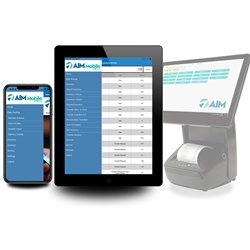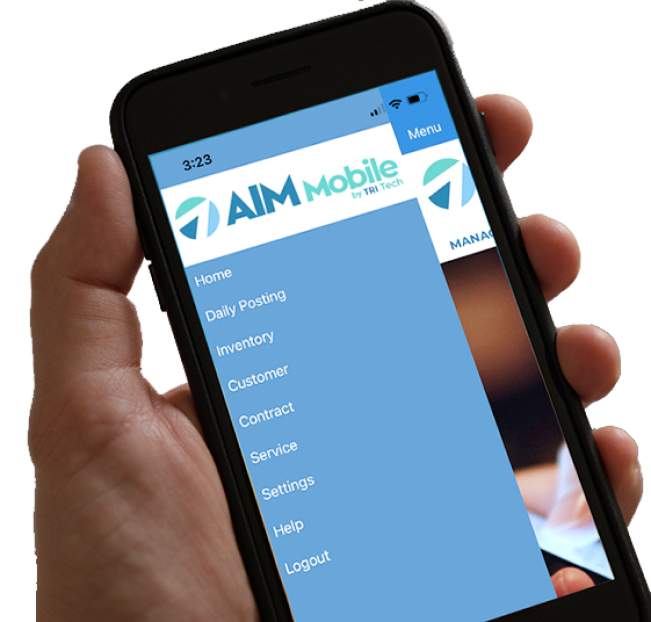Running a music store comes with unique challenges, from tracking a diverse inventory to managing rentals and lessons. Luckily, a well-integrated music store point of sale (POS) system helps simplify your day-to-day tasks and makes your operations run more smoothly.
But integrating a music store POS isn’t just about plugging it in and getting started — to truly benefit, it’s important to set it up in a way that fits your store’s needs.
What Is POS Integration?
POS integration brings your sales, customer data, and inventory management together in one easy-to-use system. While managing transactions is simple, taking your business to the next level requires deeper insights — and that’s where a POS system makes all the difference.
Integrated POS systems pull together data on your sales, inventory levels, and customer preferences to offer insights into what’s moving and what’s not. By looking at trends, sales velocity, and customer buying patterns, you can make more informed business decisions. With everything in sync, you can better predict future demand and run a more efficient music store.
In this post, we’ll cover six practical tips to help you make the most of your music store POS, plus three providers to consider. Whether you’re upgrading your current system or shopping for a new one, these tips will set you up for success.
1. Organize Inventory With Built-In Tools
Keeping track of hundreds (or thousands) of products can be overwhelming, but a music store POS with inventory management tools makes it easier. Use these tools to:
-
Categorize products by type, brand, or instrument family.
-
Monitor stock levels to avoid running out of popular items like guitar strings or drumsticks.
-
Track sales trends to see what’s selling and what’s not.
An organized inventory means less time spent searching for products and more time helping customers.
2. Simplify Instrument Rentals With Automated Tracking
If your store rents out instruments or equipment, choose a music store POS that supports rental management. Features like automated due date tracking, contract management, and payment reminders help ensure nothing slips through the cracks. For example, a violin rental program can be easily tracked to avoid late returns or lost items.
3. Manage Music Lessons All in One Place
Offering lessons? Look for a music store POS system that includes scheduling tools for managing instructor availability, student appointments, and billing. This eliminates the hassle of juggling separate systems and keeps everything in one place. Many music stores find that integrating lesson management directly into their POS helps streamline communication with students and families.
4. Improve Customer Experiences With Personalized Features
A music store POS system also helps you provide a more personalized shopping experience. Use it to:
-
Track purchase history so you can recommend complementary products or upgrades, such as an extra reed or guitar picks.
-
Manage loyalty programs to reward repeat customers.
-
Send promotional emails about upcoming sales or events like upcoming classes or performances.
Building stronger customer relationships can lead to higher retention and more word-of-mouth referrals.
5. Bring Together In-Store and Online Sales
If your music store sells online, having a POS system that connects your physical and digital operations is key. This ensures your inventory stays up to date across all channels, so you don’t accidentally sell the same product twice. For instance, if you sell a used acoustic guitar in store, the system automatically updates your website to reflect the change.
6. Use Reports To Make Better Decisions
The data from your music store POS system isn’t just numbers — it’s insight into your business. Use sales reports to identify trends, track high-performing products, and make informed decisions about what to stock. A solid music store POS generates easy-to-read reports that help you spend smarter and avoid overstocking items that don’t sell.
7. Streamline Repairs and Services
An effective retail POS system does more than just process sales — it helps manage repairs and services. By tracking every repair request, from intake to completion, you can stay organized and ensure nothing gets overlooked.
Whether it’s handling instrument repairs, scheduling maintenance, or generating invoices, integrating repair management into your music store POS system harmonizes the process. This not only improves efficiency, but makes for a smoother, more reliable customer experience.
Top 3 Music Store POS Providers
When choosing the right POS system for your music store, it’s important to consider your unique needs — whether it’s handling sales, managing inventory, or providing repairs and services. There are many options out there, but some providers stand out, while others don’t fit the bill.
In this section, we’ll take a closer look at three top music store POS providers to help you make an informed decision. Let’s dive into what each has to offer and how they can benefit your business.
AIM
AIM POS retail solution is designed to cater to the unique needs of music stores, offering tools for inventory management, rental tracking, and lesson scheduling. Its all-in-one system smooths out operations and improves customer service.
Reviews
- “We love that we can email purchase orders directly to the publishers with just the click of a button! The active-e feature is great as we can import new titles directly from publishers and have them active on our website. Active-e has also greatly improved our keeping up on price changes and making sure we don't have old prices in our system!" — Vanessa Maly
- “AIMsi has helped us go from two to four stores in the last ten years, and in that time we've gone from five to over thirty employees. Over the years we have purchased and implemented all the modules that AIMsi has to offer; it handles our on-line rentals, e-commerce integration, and the B2B portion has been a huge time saver maintaining our inventory.” — EJ Dombrowski
Pricing: AIM offers flexible pricing plans tailored to the size and needs of your business. Contact directly for more details on customized packages.
RetailEdge
RetailEdge offers a user-friendly POS system that works with a variety of retailers, including music stores. It provides an intuitive interface that makes it easy for staff to get up and running quickly. The system also integrates payment processing, which coordinates transactions, and allows you to manage inventory, sales, and customer data all in one place.
Reviews
-
“The front end register was ideal for new, young sales and customer service reps. Detailed reports and customer management worked really well.” — Jim Golden
-
“We used Retail Edge for inventory control, front end sales and back office management in conjunction with Quickbooks for accounting purposes. We also used it for quarterly full inventory reporting.” — Gregg Jamison
Pricing: Plans vary based on number of locations and features, but start at $45 per month.
Music Shop 360
Music Shop 360 is a music store POS that includes tools for managing a large inventory, multichannel sales, and customer data. It’s ideal for stores needing a user-friendly system built specifically for music businesses.
Reviews
-
"The thing I like most about Music Shop 360 is on a weekly basis, you're seeing all of these new improvements [and] things that are making your job — Jeremy Chapman
-
"Our business started on Music Shop 360 and has continued to use it since. From the POS system to the website and reverb, it's all intuitive to use and seamlessly communicates with each other." — Ceth Barrett
Pricing: Music Shop 360 offers tiered pricing based on the features you need, with tailored options for larger businesses.
Take the Next Step for Your Music Store Business
A music store POS system can transform the way you run your shop, helping you save time and avoid common hassles so you can focus on your customers and their passion for music.
Have questions or want to see how AIM can reduce your daily workload? Reach out to us today to set up a demo — we’re here to help your music store run smoothly.








